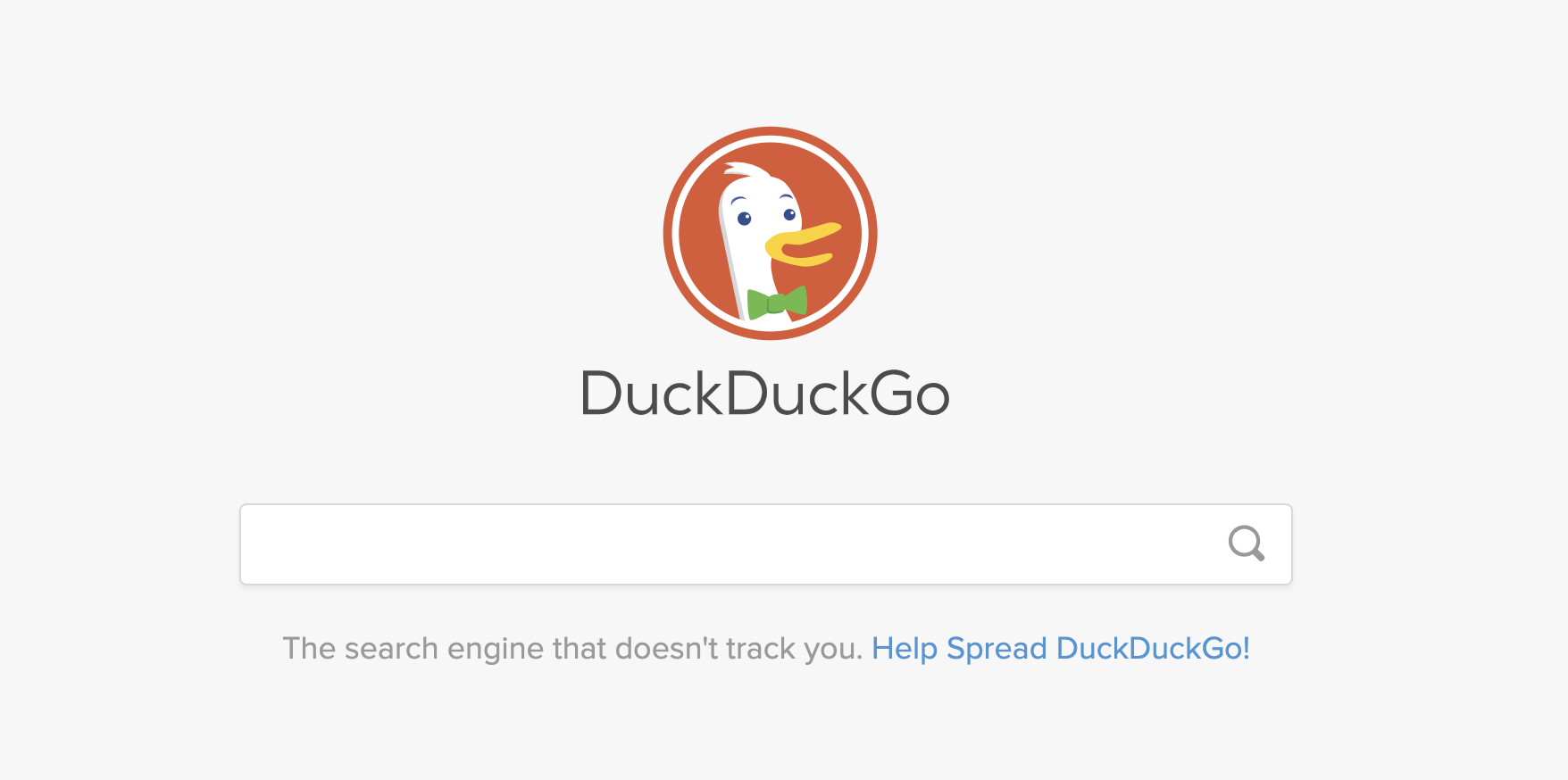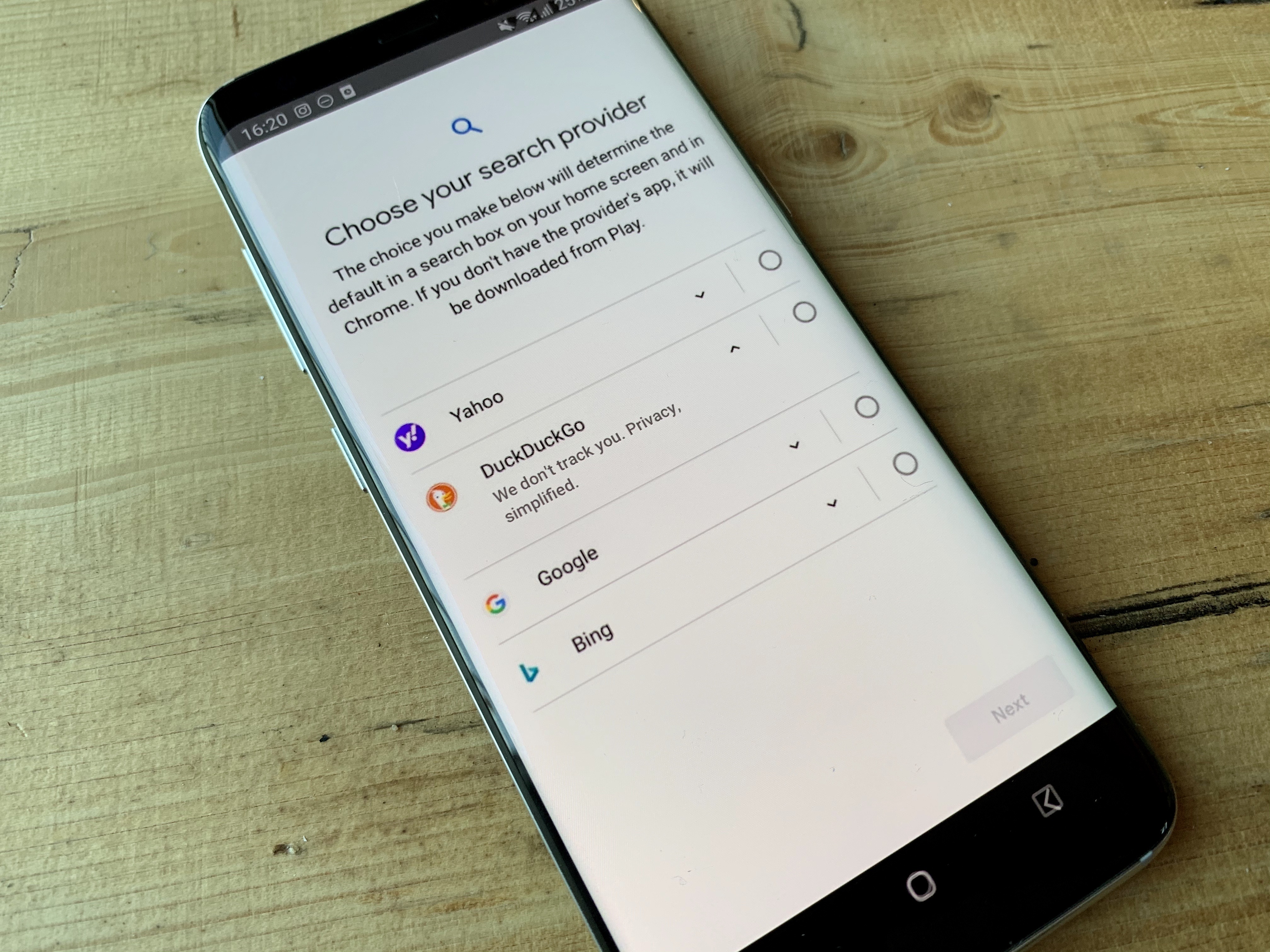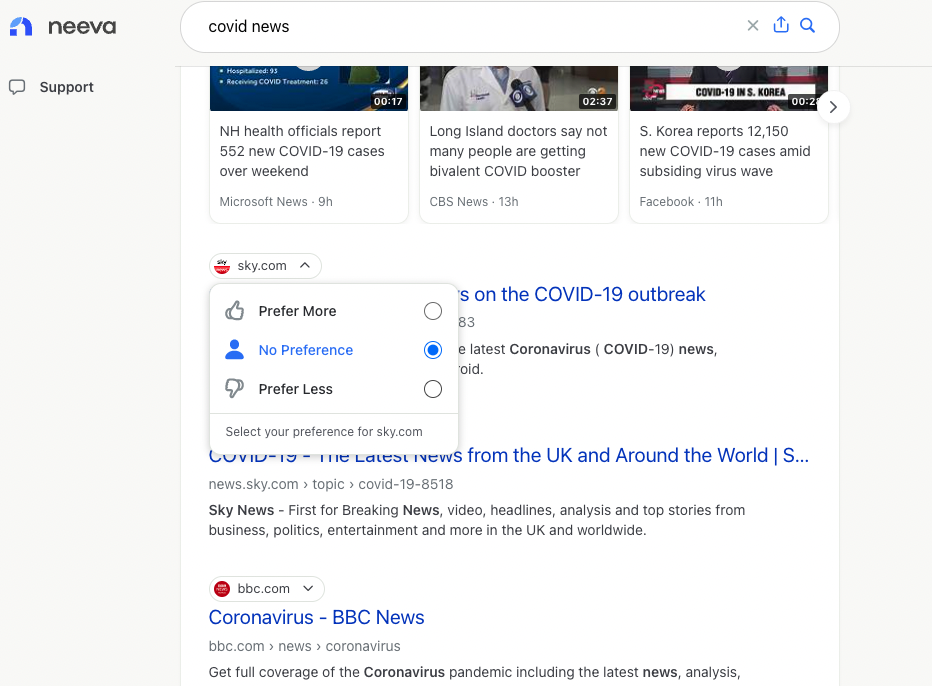[ad_1]
A filed in court In US Justice Department case against Google Some notable information has emerged about the state of search market competition regarding its alleged monopoly in the search market, including the internal workings, revenues, and, in some cases, the exit prices of potential Google competitors, such as duckduckgo And neva riverthe latter of which Snowflake was sold last year After turning to enterprise.
Google’s proposed “Find the Facts” file documents the history of the search competition, including Google’s own beginnings, its innovations, the competitive landscape, Google’s search advertising business, distribution agreements, and more.
Of particular interest to us were the parts that referenced web search startups like DuckDuckGo and Neeva and their business growth.
The filing reveals some details we already knew about DuckDuckGo — for example, that it has been profitable since 2014 and that its source Operating revenue is currently search advertisingNamely search ads provided by Microsoft in the US However, Google’s proposal also attempts to paint a picture of a startup that did not invest in search innovation but instead focused on returning investments to its shareholders.
As claimed in the filing, DuckDuckGo raised $10 million in 2018, but “the majority of that money was distributed to DuckDuckGo shareholders,” rather than being used to improve its search engine. When DuckDuckGo raised money again in 2020 – a $100 million round – a percentage of it was again returned to shareholders. (The exact percentage was redacted.) The filing argues that when shareholders sold stock to various VC firms, those funds were not used to improve the search engine. But it also refutes this point, given, for example, that a third of DuckDuckGo’s 50 employees in 2018 were working on improving the search engine.

Image Credit: duckduckgo
Still, the document points out that despite DuckDuckGo’s profitability, it has not built its own “comprehensive web index” for organic search results – hardly a point in Google’s favor. Additionally, when Apple was asked whether it would consider making DuckDuckGo the default in the Safari browser, Apple’s SVP of Services Eddy Cue responded, “No, we did not. , , “This is not a good option for customers.” Ouch!
This also includes the scope of DuckDuckGo’s business. The filing said the startup estimated that its search engine was being used by 100 million people globally by 2021. The search engine receives only 2.5% of typical search queries in the US, despite estimates that claim 10% of people in the US do so. the user. This, DuckDuckGo’s leadership explained, is due to the fact that people often use their search engine for some, but not all search queries.
In Europe, even after the introduction of the Android “choice screen”, DuckDuckGo received only 0.6% of search queries on mobile devices by August 2023, where it is offered as an option. Overall, its percentage of search queries in Europe in 2023 ranged from 0.5% to 2.5%, depending on the country.

Image Credit: duckduckgo
By presenting these findings, Google hopes to prove that people are choosing its search engine because it is better and more innovative, and not because of its monopoly share.
It dismisses DuckDuckGo’s approach to privacy as one of its failings, claiming that this approach compromises “critical trade-offs for search quality” by not using data such as search sessions, sign-in experiences, and more. Leads to “Off”. However, if anything, these details and others included in the filing demonstrate how difficult it is for a competitor to build a search business to rival Google’s.
Here’s another startup serving as an example of that problem. neva riverSearch engine founded in 2019 by former Googlers Sridhar Ramaswamy and Vivek Raghunathan. Niva was originally promised not only Because of its basis, But also because of its founding team. CEO Ramaswamy worked at Google from 2003 to 2018 and held senior positions where he reported to the CEO and managed Google’s advertising, commerce, search infrastructure, and privacy teams, court documents remind us.
With the team’s deep technical knowledge and experience, they devised a plan to provide consumers an ad-free alternative to Google by generating revenue through subscriptions. Neeva said that it will be done by 2022 More than 600,000 users gatheredBut most were not paying customers at the time.

Not prioritizing search results. Image Credit: neva river
The court filing provides some more details about Neeva’s progress, mentioning funding from top VC firms like Sequoia Capital and Greylock Ventures in addition to personal investment from Ramaswami. The company believed it could compete successfully on search quality in the US and select other markets with only a 2.5% share of common queries, as Ramaswamy testified during the trial.
The startup began by offering results through Microsoft’s Bing while it developed its own search infrastructure. By 2022, it was using its own technologies for ranking web results and considered itself on par with Google and better than Bing due to its use of machine learning, natural language processing, and other technologies.
To develop and train its machine learning models, it licensed anonymized information as a commercially available dataset. Google can’t claim that Neeva isn’t doing anything new here. The startup launched a generative AI feature, Neeva AI, last year, similar to what Google is now testing with its Search Generative Experience (SGE), in which it uses AI to answer certain queries directly on search results pages. Also gives answer.
As a result, Neeva was successful in attracting some users. At its peak, it had “several million unique users per month,” Ramaswamy said in the filing. Unfortunately, the inability to compete with free search ultimately led to the startup shutting down its consumer business, pivot to enterpriseAnd finally Exit SnowflakeBecause it was unable to attract the venture capital funds needed to continue its business.
“My co-founder, Vivek, and I came to the reluctant conclusion that we would not be able to build the business fast enough to be able to raise capital to support the development of the product and team,” Ramaswamy testified. “So earlier this year, in May [2023] – We actually started talks of a potential acquisition in March – but earlier this year, in May, we shut down the consumer search engine, returned the money customers paid us, and got acquired by Snowflake Gaya, which is an enterprise data company,” he said.
Neeva was generating less than a million dollars in subscription revenue at the time and growing, but still had a small share of the search market, the filing also tells us.
The startup exited Snowflake for about $184.4 million in cash, more than double the amount it invested, the filing said. This is slightly higher than previous reports in which this number was estimated $150 million.
Although not a startup, the document also touches on Yahoo’s (TechCrunch’s parent company) lost search business, which it says it lost after a 2009 deal with Microsoft for algorithmic search and paid search ads. Had stopped crawling the web. This partnership allowed Yahoo to reduce its search investment and focus on other popular products such as Yahoo Finance, Yahoo Sports, Yahoo News, and Yahoo Mail. (Much of the Yahoo section has been redacted, we should note.) It says Mozilla once made a deal with Yahoo as well, but dropped it because of search quality.
With few viable competitors in the market in the search space, Google tries to argue that it competes with a number of other products, such as dedicated mobile apps and websites that provide certain types of search, such as Yelp, Airbnb. , Amazon, Expedia, Booking.com, Hotels.com, and others. It also claims to compete with AI like ChatGPT and social media like Facebook, Instagram, Pinterest and TikTok – the latter three especially among younger users.
For example, Liz Reed, vice president of Google Search, said in 2021 that “63% of daily TikTok users ages 18 to 24 said they use[d] TikTok as a search engine in the last week.”
Whether the court will be swayed by Google’s argument that it does not have a monopoly in search, and more broadly in search advertising, which is a large part of the case, remains to be seen. Google is the clear winner in the search market, but as these examples show, it has no shortage of competitors trying to enter. However, the trial had already revealed that Google had used significant resources to maintain its position in the search market – for example, by paying Apple. Default search on iPhones will be worth $18 billion, Meanwhile, Apple Microsoft considered purchasing Bing in 2020 and it was also Considering making DuckDuckGo the default engine in SafariBefore rejecting the idea of continuing to cash Google’s checks instead.
[ad_2]
Thanks For Reading

